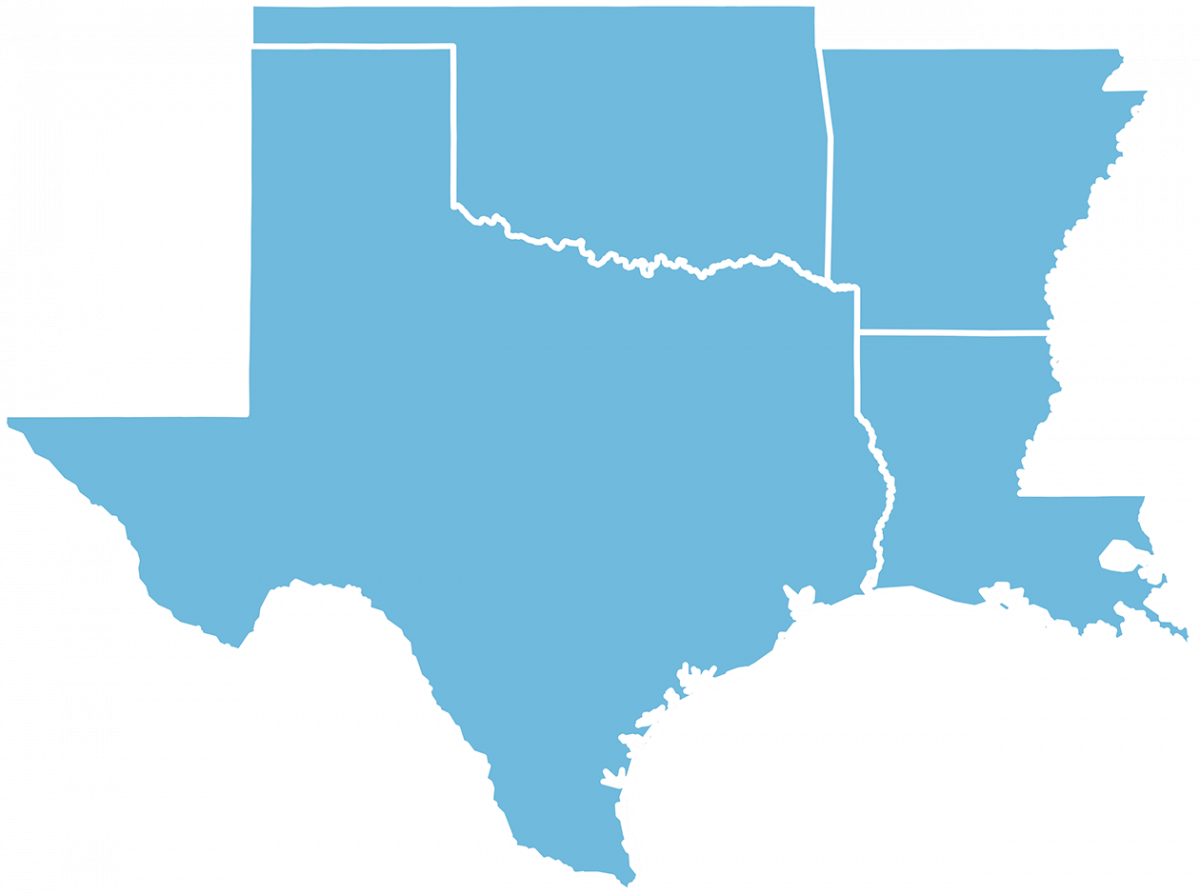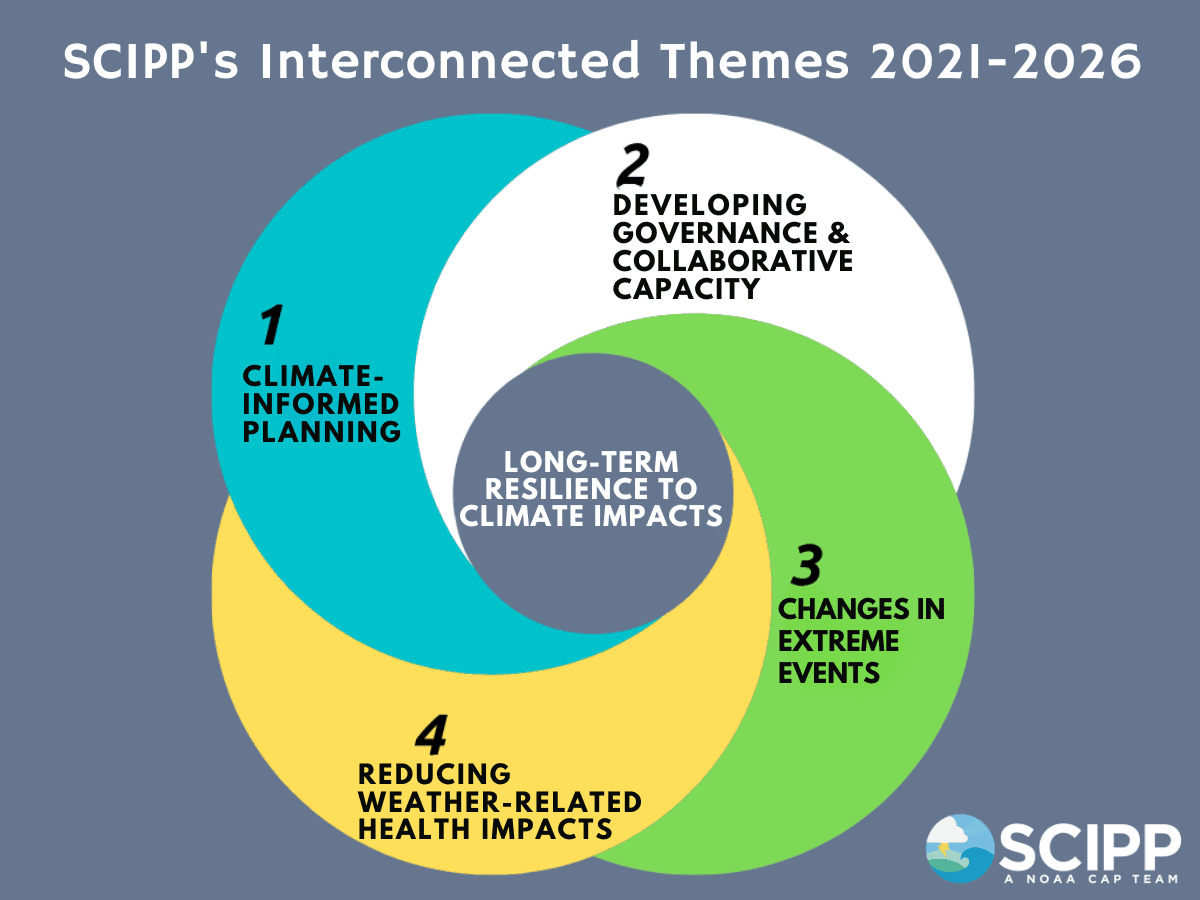The Southern Climate Impacts Planning Program (SCIPP) helps communities and organizations in the South Central U.S. assess and address their weather and climate risks and impacts.
The region experiences a multitude of hazards that often result in disasters, which are becoming increasingly common and costly as the climate continues to change and populations grow. SCIPP works closely with practitioners and researchers across the region to investigate changing climatic conditions, understand needs in planning and implementation processes, facilitate information exchange, and produce knowledge that can help address those challenges. We:
- Conduct research to understand climate hazard trends and patterns that are useful to decision makers.
- Conduct research to understand climate-relevant planning, policy, and financial processes.
- Convene decision makers from local, state, and national organizations who do not often interact to solve complex problems.
- Co-produce data tools and information that are useful to a variety of audiences.
Our ultimate goal is to help the people and economies of the region
thrive in the midst of highly variable and often extreme weather
conditions.


SCIPP is a partnership between the University of Oklahoma, Louisiana State University, Louisiana State University Health Sciences Center, Texas Sea Grant at Texas A&M University, and Adaptation International. Established in 2008, SCIPP is one of several NOAA Climate Adaptation Partnerships teams, formerly Regional Integrated Sciences and Assessments. The core office connects closely with other regional climate services partners, including but not limited to the NOAA Southern Regional Climate Center, USGS South Central Climate Adaptation Science Center, USDA Southern Plains Climate Hub, and State Climate Offices. We also collaborate with state and local government agencies, non-profit organizations, professional associations, and more through our research and engagement.
The SCIPP team includes expertise from various academic disciplines, including climatology, meteorology, climate adaptation, political science, public administration, business, geography, environmental justice, sociology, and psychology. Stakeholder-driven or “co-produced” research is a central tenet of the NOAA CAP program.
While our guiding mission remains unchanged, our focus areas evolve approximately every five years based on our grant cycle and regional needs. Currently, our projects have four themes:
- Climate-Informed Planning
- Developing Governance and Collaborative Capacity
- Changes in Extreme Events
- Reducing Weather-Related Health Impacts
Learn more about our work, partners, and project updates:

SCIPP was established in 2008 through a competitive proposal process under the direction of Dr. Mark Shafer at the University of Oklahoma and Dr. Barry Keim at Louisiana State University. At its inception, SCIPP covered a six-state region. It focused on improving access to climate information for use in planning processes, emphasizing physical climate analyses, developing data tools, and understanding planning contexts. Over the years and through subsequent successful grant applications, the team’s focus shifted more toward specific decision processes and social dynamics. This involved more targeted engagement in the context of climate resilience actions.
OU and LSU have always served as SCIPP’s core institutional partners. Additional institutional partners changed throughout subsequent grant phases to best serve regional stakeholders. Previous institutional partners include the Southern Regional Climate Center, National Drought Mitigation Center, University of Nebraska-Lincoln, Texas A&M University, and University of Kansas. The geographical scope was reduced to four states in 2018 to facilitate deeper interactions with stakeholders. For more information, see this poster that was developed in 2019.

